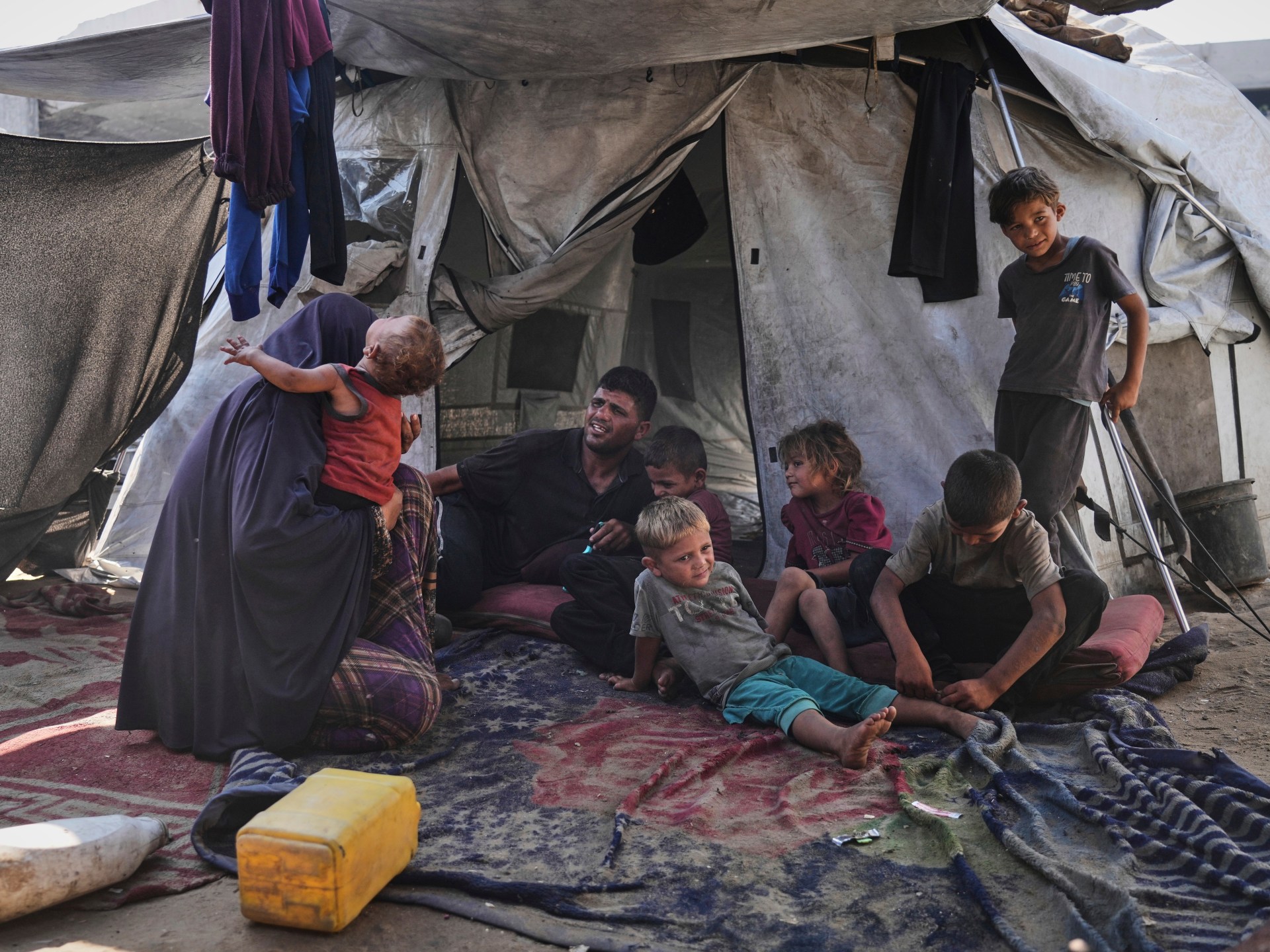The Sobh family has found refuge in a coastal camp west of Gaza City after being repeatedly forcibly displaced during Israel’s conflict there.
Fadi Sobh, a 30-year-old street vendor, describes his tent as “unbearably hot during the summer.” Because there is a shortage of clean water, his 29-year-old wife Abeer collects seawater.
As their mothers pour saltwater over them, the children take turns taking a bath while their mothers stand in a metal basin. Hala, a nine-month-old, sobs when the salt irritates her eyes, while her siblings bear the discomfort without complaint.
Abeer uses a baby bottle to give Hala water. She has lentils to grind into powder and add to the water on good days. Due to the stress, hunger, and summer heat, she claims, “One day feels like one hundred days.”
Sometimes with one of his children, Fadi visits a nearby soup kitchen. However, he claimed that “food is rarely available there.”
The kitchen only serves one or two dishes per week, never meeting the demand. He frequently waits an entire day before leaving with nothing, and the kids go to bed hungry.
Abeer occasionally travels with her children, Youssef, and other aid trucks close to the Zikim crossing alone. More powerful and quick than she is, the majority of the crowds are men. She said, “Sometimes I get food, but frequently I get home empty-handed.”
She begs those who secured supplies if they are unsuccessful. She pleads, “You survived death thanks to God, please give me anything.” Many people respond by handing her a small bag of flour to bake for the kids.
The six children stay inside or close to the tent during the day’s hottest hours. Their parents discourage them from using up their energy and turning hungry and thirsty, preventing them from falling asleep in the heat.
The children venture outside as the weather cools. Abeer occasionally sends them to ask for food from the neighbors. Sometimes they sift through rubble and rubbish to find anything to fuel their tiny stove in Gaza’s crumbling streets.
The family occasionally gathers enough food for Abeer to prepare a meal, typically a thin lentil soup, after spending the day looking for life’s necessities, such as food, water, and cooking fuel. They frequently go to bed hungry and have nothing.
Source: Aljazeera

Leave a Reply